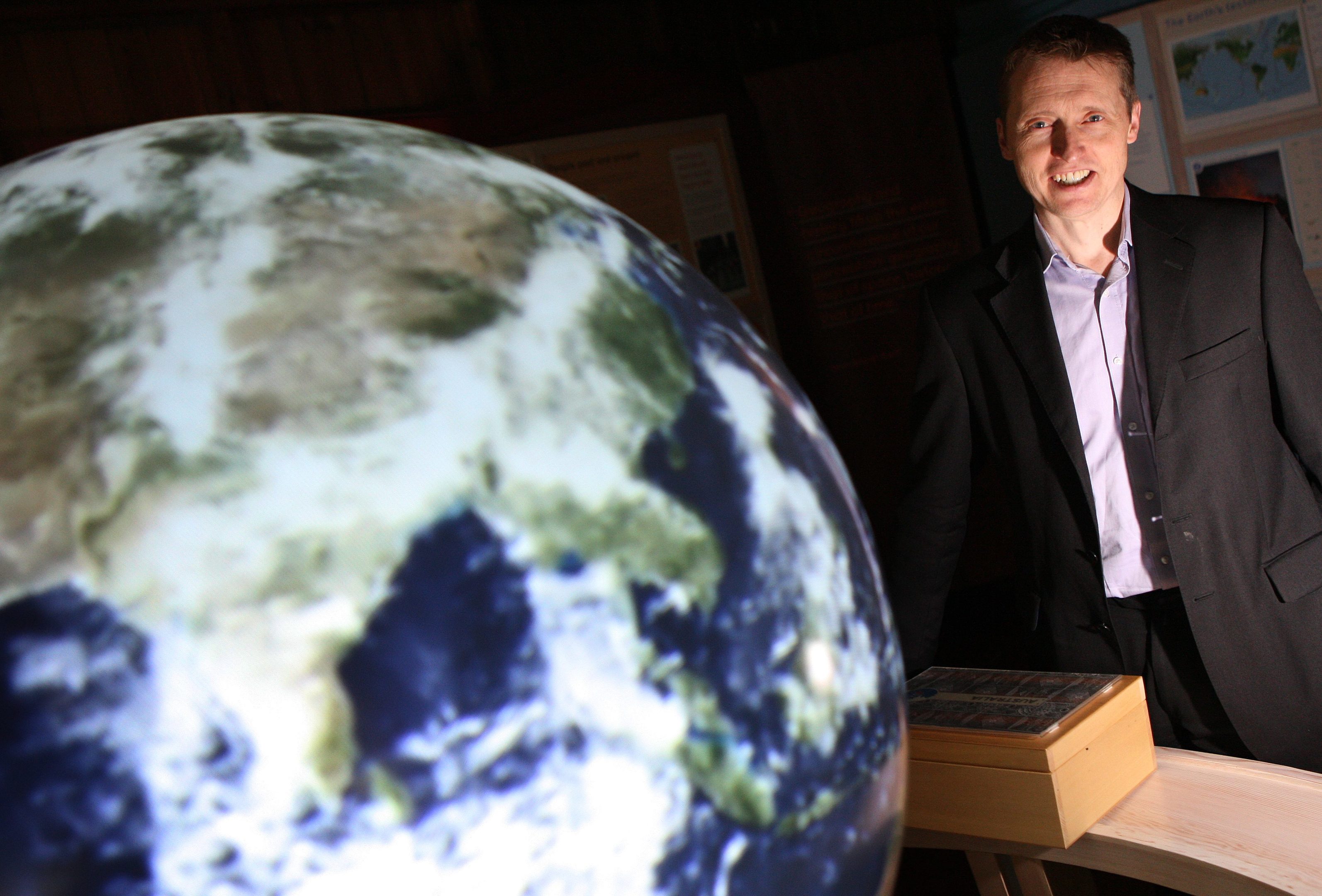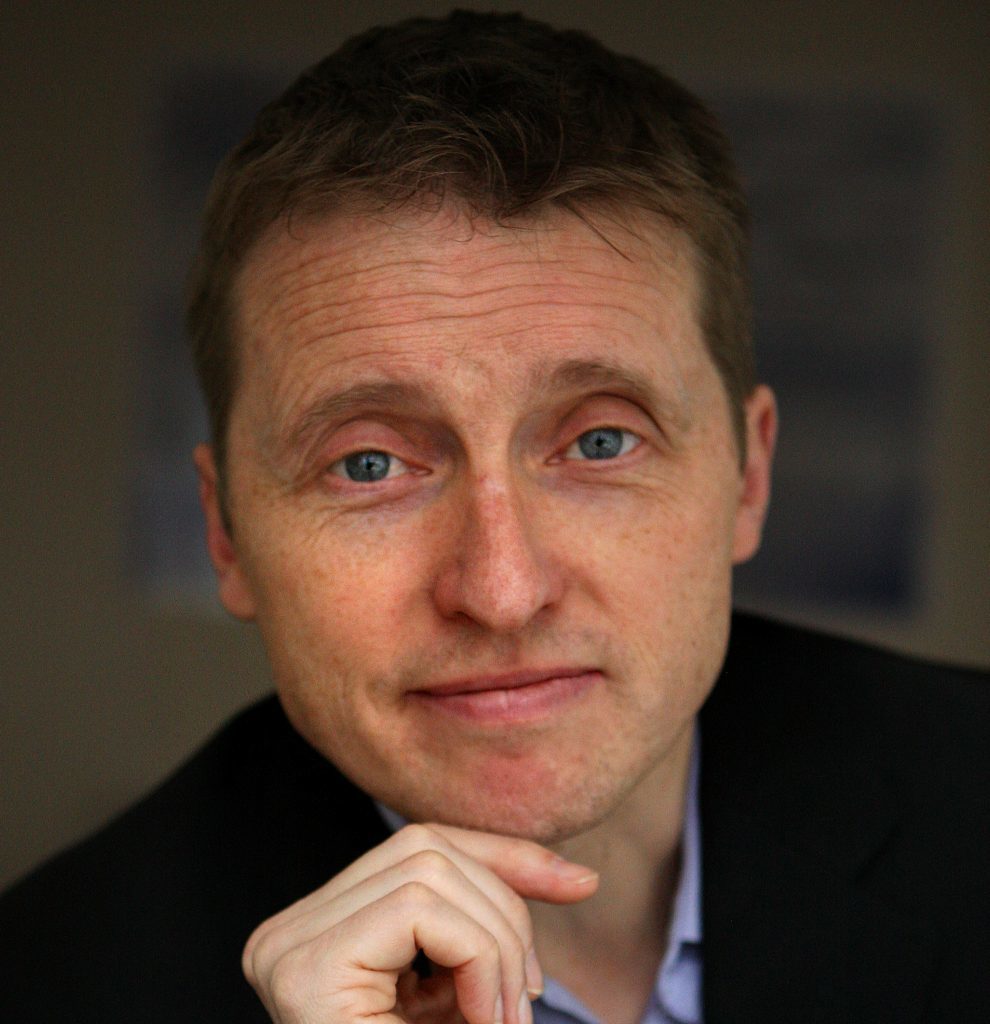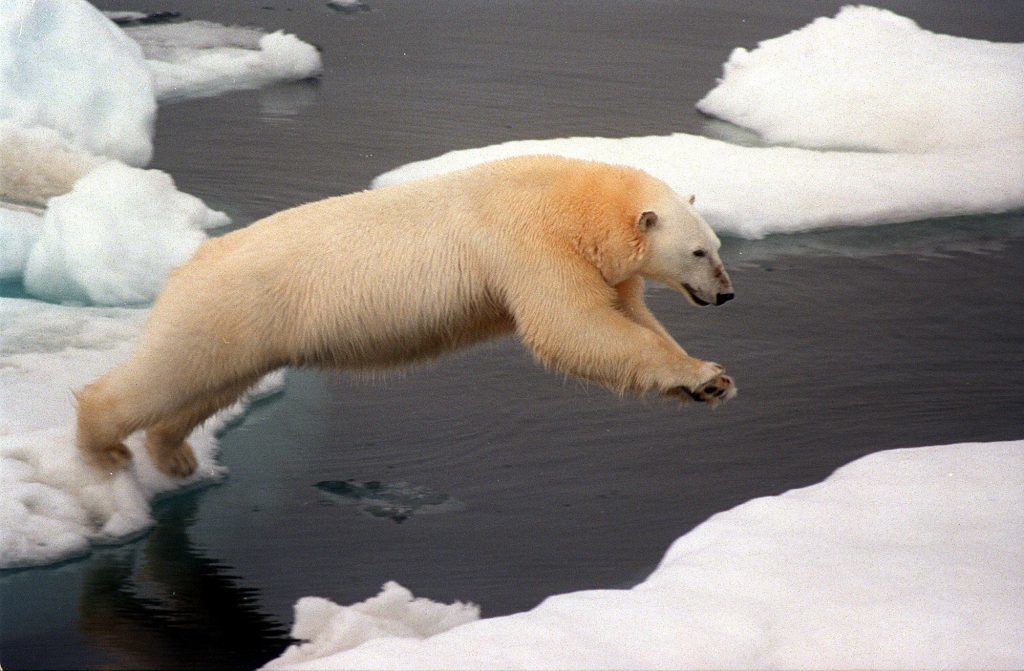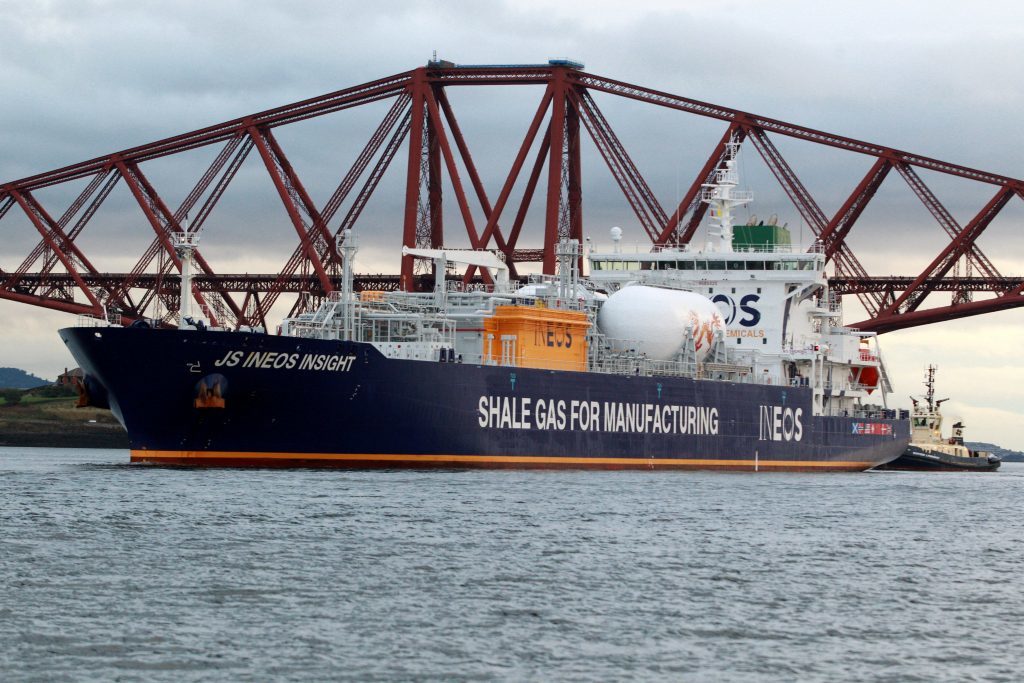Ahead of a lecture in Perth, the chief executive of the Royal Scottish Geographical Society Mike Robinson tells Michael Alexander why he believes Scotland can lead the world in finding solutions to climate change – before it’s too late.
At the height of the industrial revolution, Scotland led the world in developing technologies and manufactured products that were employed throughout the globe.
Now, as the latest statistics confirm Scotland is leading the way on UK climate action, one of the country’s leading climate change campaigners has told The Courier he believes Scotland can go full circle by leading the world in green technologies and practice.
In a lecture to the Perthshire Society for Natural Sciences on October 14, Mike Robinson, chief executive of the Perth-based Royal Scottish Geographical Society, will discuss the potential solutions to climate change.
And he will explain why, with the right leadership from government and business, he believes Scotland can export its proven skills globally to prevent the developing world from repeating 200 years of mistakes by the west.
“Last year’s Paris Climate Agreement was momentous in getting 195 countries to agree there was a global climate problem,” he said.
“Then there was the recent announcement by the Scottish Government that Scotland has exceeded its target to reduce greenhouse gas emissions by 42% – six years early.
“But what Paris didn’t do was decide what the solution was. It left a gap.
“What Scotland has done is show that we have a desire to be ambitious, and we have a huge amount of expertise in Scotland that we can make available globally.
“Ultimately we are a very small percentage of global emissions ourselves.
“But with leadership and Scotland’s proven expertise, we can help the likes of Brazil, India and China to pursue a non-fossil fuel growth.
“Because if they pursue the type of growth we have pursued for the last 200 years, the world is in trouble.”
Mr Robinson, 50, who has been RSGS chief executive for eight years, has been immersed in climate change action since the mid-1990s.
The founder and former chairman of pressure group Stop Climate Chaos Scotland had his confidence in Scotland’s ambitions buoyed earlier this year when he organised a conference in Edinburgh which included government, business and scientific representation.
Now, following the publication of Scotland’s climate target figures in June, other countries have been looking to Scotland to see how these targets were met.
“I’m an optimist when it comes to climate change,” added Mr Robinson.
“I genuinely believe we can achieve great things.
“But I don’t under estimate how difficult it’s going to be. I would go further than that and say that in a funny way, climate change is an accidental consequence of being unsustainable.
“Nobody set out to cause it. It’s just happened because we didn’t realise entirely the consequences of some of the things we were doing.
“What we have to do is learn to be sustainable. Arguably, humanity has never learned to do that.”
Last month the government’s climate watchdog, the Committee on Climate Change (CCC), confirmed that emissions are falling at a faster rate north of the border than the rest of country
Yet the CCC also warned that more work is needed to ensure Scotland is prepared to meet the challenges posed by climate change, with flooding highlighted as a particular area of concern.
It warned that global warming is already affecting Scotland, with increases in average temperatures, sea level and annual rainfall all observed.
Average temperatures in Scotland are now around 0.7C higher than they were a century ago, with annual rainfall having increased to a level 13% above the average for the early decades of the 20th century, the report said.
The Adaptation Sub-Committee (ASC) of the UK Committee on Climate Change (CCC) praised the Scottish Government’s climate change adaptation programme, published in 2014, as a “positive start” in preparing for global warming, but said that in many areas it was difficult to assess progress due to a lack of data.
The arrival of the first shipment of US shale gas into Grangemouth has reignited the debate over fracking – currently the subject of a moratorium in Scotland.
But Mr Robinson stresses the need to look at climate change from a strategic perspective rather than through short- term “quick fix” thinking.
Issues he’s interested in, for example, include how to make cities more energy efficient, and the future of transport – including the need for fundamental rail investment north of the Forth. And what can individuals do, however small, to make a difference?
“One of the things I’m always wary of in addressing climate change is that there’s a single bullet,” he continued.
“There isn’t a single bullet. This is about a whole systematic strategic joined up approach.
“Any one thing in isolation is not going to break the problem and it’s not going to solve the problem. It’s about the breadth of things we choose to take on.”
- Mike Robinson speaks to the Perthshire Society for Natural Sciences on October 14 go to psns.org.uk/programme/














